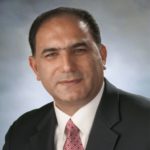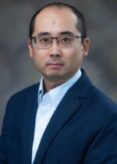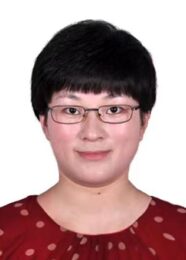 The Mouse Genome Engineering and Transgenic Facility at the Health Science Center is finally off the ground and committed to generating genetically engineered mouse models for all UT Health San Antonio investigators.
The Mouse Genome Engineering and Transgenic Facility at the Health Science Center is finally off the ground and committed to generating genetically engineered mouse models for all UT Health San Antonio investigators.
The genetically modified mouse models provide unique tools for investigators to delineate the function of a particular gene or a number of genes in a vertebrate system that is relevant to human. During the last quarter century, numerous advances in molecular genetic methodologies, such as homologous recombination in embryonic stem cells or the CRISPR/Cas9 system, bolstered the creation of efficient and reliable methods to generate modified animal models. Although, the phenotypic outcome of any genetically engineered mouse cannot be fully predicted, but when it does replicate a human disease, it provides tremendous advantages to understand the genetic and biological bases of a disease, and also illuminates avenues for therapeutic intervention. The time and monetary investment that go into their generation still remain very high, and there was an urgent need to establish an economically viable in house re-source to generate genetically modified mouse models at the HSC.
Our facility provides multiple services outlined below.
Project design and support
Our facility will work with you to design a model to meet your needs and once a project begins, we will be there to keep you informed and answer any questions you may have along the way.
Molecular cloning
We can clone your plasmid of interest. Molecular cloning project will not be limited to mouse project, but will also include viral plasmid vectors, siRNA vectors, drosophila targeting vectors, or any shuttle plasmids. We can also assist you synthesizing large ODN or dsDNA using gBlock or other available technologies from commercial companies.
Pronuclear microinjection (transgenic and gene targeted)
We target an average of 250 to 300 zygotes. BAC or other DNA can be injected to generate transgenic mouse line.
CRISPR/Cas9
All our gene targeted projects are generated using CRISPR/Cas9 technology. We guarantee NHEJ based in/dels, but HDR guided genome engineering is not, due to its mechanistic complexity. CRISPR service request can be submitted partially (pronuclear injection only) or entirely (from project design to the founder mice deliver), depending on P.I.’s resources and/or preferences.
Sperm cryopreservation/resuscitation, and assisted reproduction (IVF)
We use the sperm cryopreservation method developed by Dr. Nakagata at Kumamoto University. This method is proven to bolster fertility of frozen/thawed mouse sperm.
Mouse oocytes obtained from superovulated females can be fertilized with freshly collected or previously cryopreserved sperms via IVF, then transferred to foster mothers. Our IVF method is executed using Kumamoto University method.
Genotyping
PCR based mouse tissue genotyping service is available through our facility. The requesting lab should provide positive and negative tissue samples or purified DNA (we will store them for future applications); control PCR is free of charge. PCR oligos are also provided by the requesting lab.





